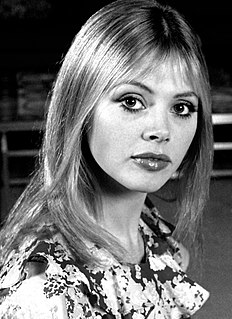A Quote by Warren Farrell
The money men make from their willingness to work the least desirable hours is not a sign of discrimination against women, but a sign of the willingness of mostly married men to lose sleep to support the family as their wife loses sleep to feed the child. A willingness to do the uncomfortable shifts is one reason married men earn more than twice what never-married men earn. Men's contribution, made at night, need not be lost in the dark.
Related Quotes
Women have always been more critical of marriage than men. The great mysterious irony of it is - at least it's the stereotype - that women want to get married and men are trying to avoid it. Marriage doesn't benefit women as much as men, and it never has. And women, once they are married, become very critical of marriages in a way that men don't.
Here's the pay paradox that Why Men Earn More explains: Men earn more money, therefore men have more power; and men earn more money, therefore men have less power (earning more money as an obligation, not an option). The opposite is true for women: Women earn less money, therefore women have less power; and women earn less money, therefore women have more power (the option to raise children, or to not take a hazardous job).
Men will work hard for money. They will work harder for other men. But men will work hardest of all when they are dedicated to a cause. Until willingness overflows obligation, men fight as conscripts rather than following the flag as patriots. Duty is never worthily performed until it is performed by one who would gladly do more if only he could.
The deeper purpose of a more positive attitude toward men is a better life for the children who are parented by the men who are their dads and stepdads; less shame for our sons who will become men; and, for our daughters, a deeper understanding of men's desire to please that leaves them feeling their willingness to please is not unrequited but returned - allowing our daughters to feel less lonely and more loved. If we earn more and love less, we pay for a home in which we do not live.
Married women are far more depressed than married men - in unhappy marriages, three times more; and - interestingly - in happy marriages, five times more. In truth, it is men who are thriving in marriage, now as always, and who show symptoms of psychological and physical distress outside it. Not only their emotional well-being but their very lives, some studies say, depend on being married!
I listen to feminists and all these radical gals - most of them are failures. They've blown it. Some of them have been married, but they married some Casper Milquetoast who asked permission to go to the bathroom. These women just need a man in the house. That's all they need. Most of the feminists need a man to tell them what time of day it is and to lead them home. And they blew it and they're mad at all men. Feminists hate men. They're sexist. They hate men - that's their problem.

































